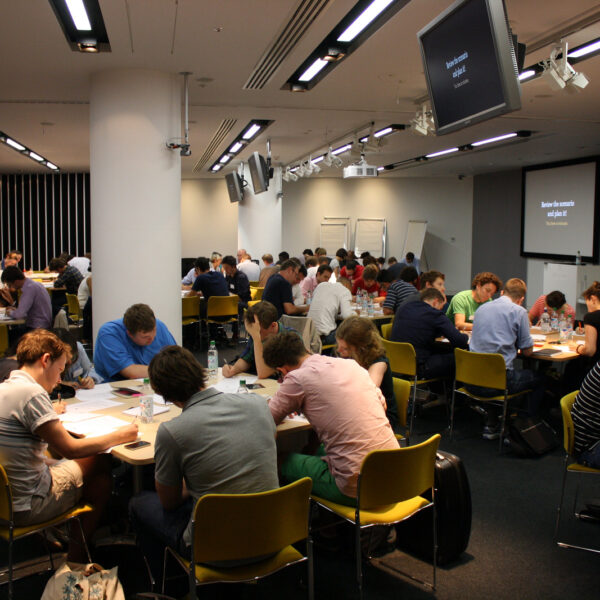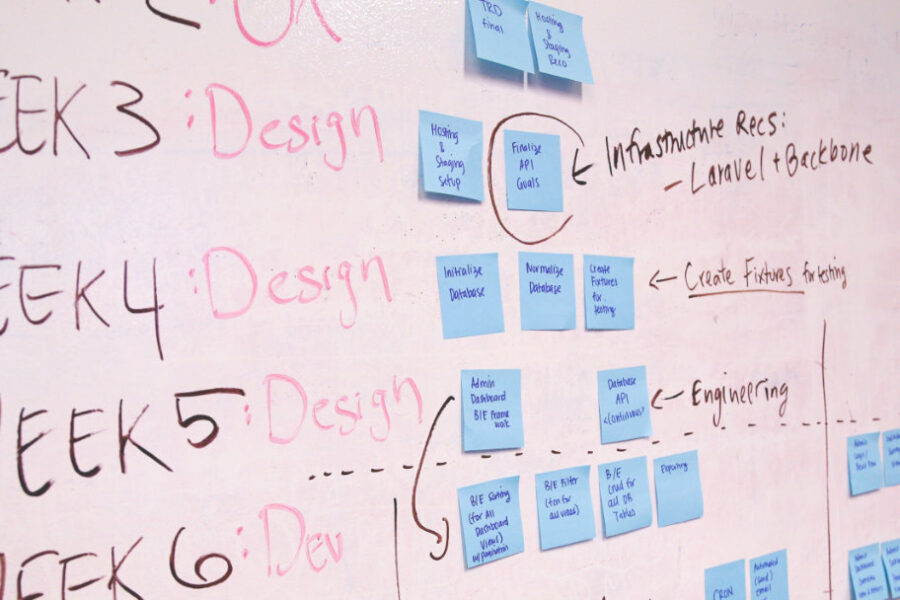Jason Westland is CEO of ProjectManager.com, an online project management software company. He’s also the author of The Project Management Life Cycle.
What’s your digital project sponsor like? A techie who has now been promoted to the ranks of senior management and who knows everything about web design? Or a client who thinks he knows what he wants but seems to change his mind at every meeting?
There are lots of people who end up sponsoring digital projects, some much better than others. Here are five types of digital project sponsor to avoid if you can and what to do if you cannot.
1. The untrained sponsor
The untrained digital project sponsor hasn’t spent much time working on projects, let alone digital projects. He or she doesn’t understand what they are supposed to do and how their role helps you project manage the work. In fact, they use their sponsor role to meddle in other tasks that the team is working on – after all, they are a senior manager so they should be able to influence the work priorities.
Unfortunately, this means that they get the team involved in ‘critical’ tasks like BAU and bug fixes on live software – stuff that should be done by other teams or at least not under the umbrella of this project.
Dealing with an untrained sponsor means educating them as much you can.
Feel free to point out alternatives to their questionable decisions, although be prepared for them to ignore your suggestions. You can also provide recommendations when you ask for a decision.
And don’t forget to point out the impact of irrelevant and non-project work – sometimes phrasing things in the business language that they understand will prompt them to step back into a more effective project sponsor role.
2. The sponsor on a committee
If you are dealing with a sponsor who is part of a committee of decision makers, then good luck to you.
It’s hard to know who is actually in charge and who you need to approach for decisions. As a result, you get different senior clients giving you different instructions and overruling design, UX and other decisions.
Who actually has the final say on what this website is going to look like? Let alone what it is going to do.
With a committee of sponsors you’ll either get too many conflicting decisions, or no decisions at all. If the latter is the case, the project will stall due to inertia, and your web team will sit around waiting for the next lot of instructions (or more likely, will get on with other useful work while the project withers away).
It’s difficult to work with several people who say that they are in charge. Get one named contact nominated by the sponsor committee, get it in writing and put it in your contract with the client or the project charter.
If you really can’t get just one person named as overall sponsor, try to break up the functional areas so that different people are responsible for different decisions – at least you’ll know who to ask then.
3. The too busy sponsor
You’ll know if your digital project sponsor is too busy when your client doesn’t respond to emails, provide any input, make decisions, or attend meetings, despite being asked and having accepted your meeting invite. This is another situation where your project will stall.
If no one is going to sign off requirements or make critical usability decisions, then you can’t progress the work. If your sponsor doesn’t care enough to be hands-on, maybe you should suggest that the project is closed down completely.
Ideally, your client sponsor should be part of the development team. If they are too busy, ask them to delegate. It is better to have a lower-level manager in charge than an absent sponsor – at least your team can actually get on with development and testing instead of having to find other things to do with their days.
4. The in-your-face sponsor
The opposite of a sponsor who is too busy is one who micro-manages everything. They come to every meeting. They give developers and testers instructions without you knowing about it. They go over your head to change the team’s priorities.
In short, they are acting like a Digital Project Manager. Except that’s your job – and you want to keep it that way.
Get your digital project sponsor involved in tasks where they can’t do any harm! Keep them busy but at the same time educate them about where the role boundaries are.
Clear documentation about roles and responsibilities could help, if you don’t have this already. It may just be that they don’t understand what a digital project sponsor should be doing. If they do understand and are still meddling, it could be that they don’t trust you to do a good job.
Check your own skills with a peer review – this could be all the proof your sponsor needs to back off and let you get on with the day-to-day management of the team.
5. The too late sponsor
The ‘Too Late’ digital project sponsor is happy to let you get on with the project at the beginning. So off you go, managing the team, the design, the development and into the testing and…
Just when it’s getting too late to make major design changes, they suddenly get interested and want lots of changes. Changes cost money and they delay testing and delivery, so there’s a massive impact to making late changes to a digital project.
It could be the difference between hitting a contractual date and not hitting it, so if you are going to have to make changes to accommodate the ideas that they have only just had, make sure you go through the change control process and get it all documented.
You can explain the cost of late changes and the benefit of sticking with what’s been done. This might be enough to put off their enhancements, even if it is only to Phase 2. However, it’s actually good news to have someone who cares about your project, even if they only just decided this now!
Working with sponsors on digital projects isn’t always easy, but unless your sponsor is deliberately malicious and interested in playing the system (and there aren’t many of those around) then it’s probably a communication and relationship problem which you can solve with some open conversations.
Digital project manager lesson
The Digital Project Manager’s relationship with the sponsor is really important, so it’s worth working on it as much as you can as, in the long run, it will make everyone’s life easier and that is the crux of the digital project management job.
Looking for guest authors
Fancy writing a blog post but can’t be arsed to set up WordPress? Then how about being a guest author on my blog?
If you’re interested then mail me and we can start talking about possible topics, and it could be anything to do with the web industry, not just digital project management.









Leave a Comment